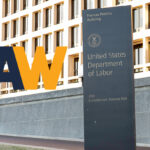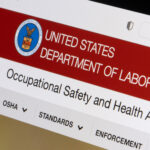The U.S. Department of Labor has issued its final overtime rule, which is set to bring mid-year changes and a substantial increase to the salary threshold for overtime exemptions.
Released April 23, the final rule’s key components are slated to proceed in two phases: 1) By July 1 of this year, executive, administrative and professional employees will need to earn at least $43,888 annually to be exempt from overtime pay. 2) By Jan. 1, 2025, the threshold will lift to $58,656.
The current annual salary threshold is $35,558, meaning the second-phase standard will be a nearly 65% increase.
The final rule noted that the salary threshold for highly compensated employees will initially rise from its current $107,432 to $132,964 on July 1 of this year and then to $151,164 on Jan. 1, 2025 — about a 24% increase from the current mark.
Employees who are salaried, make more than these thresholds and work in a “bona fide executive, administrative, or professional capacity” are exempt from the Fair Labor Standards Act requirements that employers must pay a time-and-a-half rate for any work logged beyond 40 hours in a week. Employees must meet all three of these factors for the exemption to apply.
Additionally, the final rule stated that the salary threshold would be subject to automatic adjustments every three years. This means that employers will face the next round of overtime exemption salary threshold changes on July 1, 2027.
“This rule will restore the promise to workers that if you work more than 40 hours in a week, you should be paid more for that time,” Biden administration Acting Secretary Julie Su said in a statement with the final rule’s release. “Too often, lower-paid salaried workers are doing the same job as their hourly counterparts but are spending more time away from their families for no additional pay. That is unacceptable. The Biden-Harris administration is following through on our promise to raise the bar for workers who help lay the foundation for our economic prosperity.”
Now that the rule has been finalized, the DoL could officially publish it at any time.
Opposition to the DoL’s final rule — particularly from pro-business groups — have voiced concerns about potential increased payroll costs from the implementation of the salary threshold increases, and some plan to present regal challenges.
Lauren Williams, Associate Vice President of Government Relations at the National Association of Wholesaler-Distributors, issued the following statement upon the final rule’s release:

“The rule includes an unprecedented salary threshold increase and poses significant threats to both the industry and the broader economy. This is deeply troubling, particularly amidst rampant inflation and the looming threat of recession. Distributors have spent recent years adapting operations and personnel management to meet evolving workforce needs post-pandemic, the DOL’s rule would add new regulatory burdens and compliance costs to an industry already grappling with workforce shortages and excessive regulations.
Increasing the minimum salary threshold by at least 65% percent will stifle employee growth opportunities, diminish workplace autonomy, and limit flexibility.
Courts have previously struck down similar rules because Congress’s intent is clear: the Department of Labor cannot impose a salary-level test that undermines the prescribed duties test. NAW will exhaust all avenues, including legal recourse, to prevent the enforcement of this rule.”
The DoL’s final overtime rule release came the same day as the Federal Trade Commission’s vote to ban noncompetes agreements for employers.



